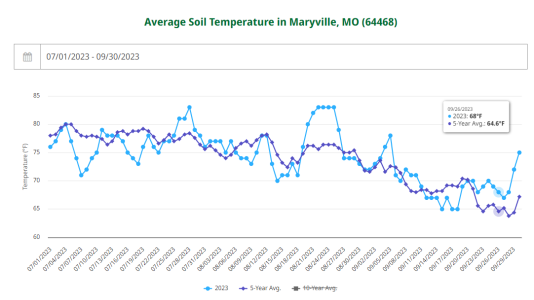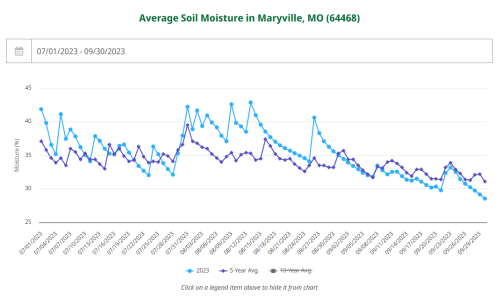Hoytvectrix
5 year old buck +
For reasons out of my control, I won't be able to plant the main food plot on the new farm this year. The field was mostly cool-season pasture that was recently terminated, but I won't be able to plant what was intended to be a perennial plot of clover, alfalfa, and chicory until July 3rd at the earliest. This is in Northern MO, so I am assuming very poor germination unless we get a really wet and cooler summer (ha!). We will have a drill so moisture is slightly less of a concern. I am concerned about heat for the clover and alfalfa for July and August. I already have a few other plots of clover and will have a few brassica plots. The main ag fields in the area are all corn.
The question is, do I plant one of the following:
1) The intended perennial mix of clover, alfalfa, and chicory in July
2) Soybeans (possibly e-fenced) and then fill in with a fall blend of brassicas + winter rye, with planting the perennial blend next spring, or
3) Just keep the field fallow until late August when I will drill in brassicas and then overseed with winter rye.
I've never planted clover in the middle of the summer with much success, but I also wasn't drilling it. The alfalfa and chicory have always been drilled in the early fall or late spring and I have had great luck with these. This mix is something I have had terrific luck with at another farm that is in the area. I have drilled beans 4th of July weekend in the past with some success, but the pods did not amount to much.
The question is, do I plant one of the following:
1) The intended perennial mix of clover, alfalfa, and chicory in July
2) Soybeans (possibly e-fenced) and then fill in with a fall blend of brassicas + winter rye, with planting the perennial blend next spring, or
3) Just keep the field fallow until late August when I will drill in brassicas and then overseed with winter rye.
I've never planted clover in the middle of the summer with much success, but I also wasn't drilling it. The alfalfa and chicory have always been drilled in the early fall or late spring and I have had great luck with these. This mix is something I have had terrific luck with at another farm that is in the area. I have drilled beans 4th of July weekend in the past with some success, but the pods did not amount to much.


